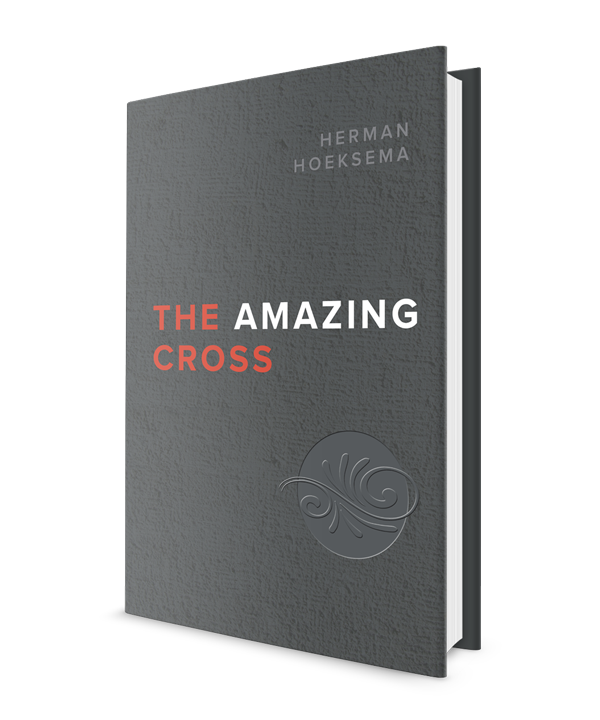Covenant Protestant Reformed Church
Ballymena, NI
17 August, 2018
Dear saints in the Protestant Reformed Churches,
BRF Conference
The British Reformed Fellowship (BRF) Conference at Hebron Hall, Cardiff in Wales (21-28 July) was the most international of the 15 biennial conferences to date. Apart from those from the various parts of the British Isles, saints flew in from Canada, the US, Brazil, Italy, Germany, Hungary, Singapore, and Australia, meaning that the only continent that was not included was Africa.
We were delighted that as many as 116 people booked in for the conference and we had 11 day visitors, most of whom came back again and again! The size and catholicity of the gathering, plus the fine Welsh venue, made for what many thought was the best BRF conference yet for fellowship. The Lord also gave us sunny and warm weather.

Prof. David Engelsma and Rev. Andy Lanning were warmly welcomed back as our main speakers. Because of her recent cancer operation, sadly Mrs. Ruth Engelsma was unable to be with us.
Our two American brethren developed the conference theme of “The Reformed Family—According to the Word of God” in their 6 main conference addresses: “The Divine Origin of the Family” (Rev. Lanning), “The Authoritative Content of the Gospel” (Prof. Engelsma), “The God-Fearing Man and His Virtuous Wife” (Rev. Lanning), “The Reformed Family: Parents and Children” (Prof. Engelsma), “It Is Good to Be Single” (Rev. Lanning), and “Unbiblical Divorce and Adulterous Remarriage: A Scandal” (Prof. Engelsma). The family is a beautiful, biblical subject that is often unfolded in preaching and writing in our circles, yet the speeches were marked not only by their depth but also by their freshness!
Rev. Martyn McGeown's opening address (“Hating Our Family: Necessary for Christian Discipleship”), the Sunday sermons by Rev. Lanning and myself (“The God of the Living” and “The Eunuchs Who Keep God's Sabbaths”), Mr. Pete Adams' presentation (“The Family and Education”), and Prof. Engelsma's special lecture (“Spousal Abuse in the Christian Community”) developed important aspects of the grand theme of the family.
Thanks to the sterling work of Stephen Murray, all of these 11 presentations can be watched free online, along with the videos of the 7 question and answer sessions that followed the 6 main speeches and the special lecture by Rev. Lanning and Prof. Engelsma ( www.youtube.com/playlist?list=PL2Y5Eq5r6y2EGXxIszbEuErsISIdc4Uvd ).
These 11 addresses will soon be made into attractive box sets of CDs and DVDs that will be available for sale at £12 in the UK (inc. P&P). The cost is $20 for those in America. Mary and I will be traveling to the US on 24 September, DV. If you place an order with us before then (This email address is being protected from spambots. You need JavaScript enabled to view it.), we can bring your box set with us in our luggage. Otherwise, we will post/mail it to you from Northern Ireland. You can pay us through Mary's US bank account (check payable to “Mary Stewart” and mail it (with your name and address) to Mr. Fred Hanko, 7341 Pinegrove Dr., Jenison, MI 49428) or the Reformed Free Publishing Association (RFPA), which will take your payment from the CPRC Bookstore's bill.
Despite the difficulty of getting a proper range of books, box sets, and pamphlets from the CPRC Bookstore in Northern Ireland across the Irish Sea to the conference on Wales, we still managed to sell almost $1,000 of Reformed materials. Beside this, a number of people bought individual issues of the British Reformed Journal and/or subscribed to this semi-annual periodical (for ways of doing the latter, see www.britishreformed.org/membership).
The membership of the British Reformed Fellowship voted to hold the next conference in Castlewellan Castle, Northern Ireland (11-18 July, 2020). The glorious subject is to be union with Jesus Christ. Having served the BRF conferences so well in the past, Prof. Engelsma and Rev. Lanning were chosen as the two main speakers. Bear this in mind over the next two years, for hopefully we may see you there!
CPRC
A number of this year's conferees from outside Europe spent time in Northern Ireland before and/or after the week in Wales. Thus the CPRC had Brazilian, American, Singaporean, Canadian, and Australian visitors on the three Lord's days before, and the two Sundays after, the conference. Some of our international guests were also able to join us at the congregational barbecue at the CPRC manse (3 August). Communion with Reformed believers from various parts of the world is always very encouraging for the members of the CPRC!

The latest addition to the CPRC Bookstore, with its more than 150 titles, is Behold, I Come Quickly (www.cprf.co.uk/bookstore.htm). This excellent little volume by Prof. Engelsma and Rev. Lanning consists of the ten main speeches at the previous BRF conference in 2016 and costs just £5. It is also available from various Protestant Reformed congregations in America and Canada, especially Byron Center PRC, the main distributor in North America; the RFPA; the Covenant Evangelical Reformed Church (CERC) in Singapore; the Protestant Reformed Churches in the Philippines (PRCP); and (soon) Launceston Evangelical Presbyterian Church (EPC) of Australia.
The youngest member of the CPRC is now little Grace Mae Crossett, daughter of David and Kristin (née Prins). Grace was baptized on Sunday, 8 July, with members of the Prins family from Michigan being present for the occasion.
The last couple of months have been a somewhat lean period for translations (www.cprf.co.uk/languages.htm). Our thanks to Ivan Ortu in Sardinia (6 Italian), and Raoul and Tania Valeev in Belgium (1 Russian). Currently, Carol Nienhuis is helping Mary by linking our many hundreds of translations. When these and many other links and webpages are converted to the new style, the whole CPRC website will be mobile friendly and have a new look (www.cprc.co.uk).
I am to speak at the RFPA Annual Meeting on “The RFPA, the CPRC, and the Spread of the Truth” in Grace PRC, Grand Rapids on Thursday, 27 September at 7:30 P.M. I will be preaching at both of the Sunday services in Wingham PRC in Ontario (30 September) and at the evening Lord's day service in Zion PRC (7 October), D.V. It will be good to meet the saints in both of these churches for the first time. Other speaking details of the trip have not yet been finalized. Rev. Ken Koole will be preaching in Ballymena in our absence, and for the Limerick Reformed Fellowship (LRF).
Thank you for your support and prayers. May the Lord continue to bless and keep you, your families and your churches!
Rev. Angus & Mary Stewart



 Pastor J. Tan
Pastor J. Tan Pastor M. Wee
Pastor M. Wee









































